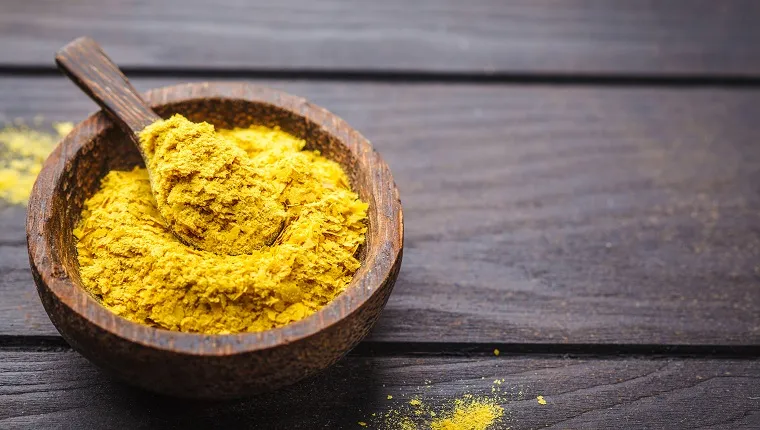Hey there, curious cat parents! When it comes to our feline friends, we want to ensure they have the purrfect diet. And sometimes, we wonder about adding a little something extra to their meals. Nutritional yeast, known for its cheesy and nutty flavor, has been making waves in the human food world for its health benefits. But what about our furry companions? Can cats eat nutritional yeast, and is it safe for them? Let’s dig into this cheesy topic with a dash of expert advice!
Nutritional Yeast: A Cheesy Superfood for Humans
The Human Hype
Nutritional yeast, often called “nooch” by fans, is a deactivated yeast strain (Saccharomyces cerevisiae) that’s grown specifically to be a food product. It’s a favorite among vegans and health-conscious folks for its cheesy flavor, nutty aroma, and nutritional benefits.
What’s in the Mix?
Nutritional yeast is packed with vitamins, especially B-complex vitamins like B1, B2, B3, B6, and B12. It’s also a good source of protein, fiber, and essential minerals like zinc and selenium.
Cats and Nutritional Yeast
Feline Foodie Curiosity
Cats are notorious for their curious nature, especially when it comes to our plates. If you’ve ever tried to enjoy a meal without your cat eyeing your food, you’ll know exactly what we mean. So, is nutritional yeast something they can share?
What the Experts Say
Veterinarians advise caution when considering adding nutritional yeast to your cat’s diet. While it’s generally safe in small amounts, it’s important to remember that cats have different nutritional needs than humans.
The Pros and Cons
The Pros
Taste Sensation
Cats may enjoy the cheesy flavor, making it a potential treat or food topper.
Nutritional Boost
Nutritional yeast offers some vitamins and minerals that can benefit your cat’s health in moderation.
The Cons
Allergic Reactions
Some cats may be allergic to yeast, leading to digestive issues or skin problems.
Excess Can Be Harmful
Like with any treat or supplement, too much nutritional yeast can upset your cat’s tummy or lead to nutrient imbalances.
Moderation Is Key
Safe Serving Size
If you decide to share some nutritional yeast with your cat, do it in moderation. Start with a tiny amount and observe how your cat reacts. If they seem to enjoy it and show no adverse effects, you can occasionally offer it as a treat or food topper.
Always Consult Your Vet
Before making any significant changes to your cat’s diet, consult your veterinarian. They can provide guidance tailored to your cat’s specific needs and ensure their health and well-being.
In Conclusion
While nutritional yeast is a fascinating and nutritious food for humans, it should be given to cats sparingly and with caution. As curious as our feline companions are, their dietary needs are unique, and it’s essential to prioritize their well-being above all else.
So, whether it’s nutritional yeast or any other treat, let’s ensure our kitties enjoy a balanced and healthy diet that keeps them purring with happiness for years to come!
- Best Clay Alternatives for 2025 - April 19, 2025
- Best Seamless.ai Alternatives for 2025 - April 19, 2025
- Best UpLead Alternatives for 2025 - April 18, 2025



